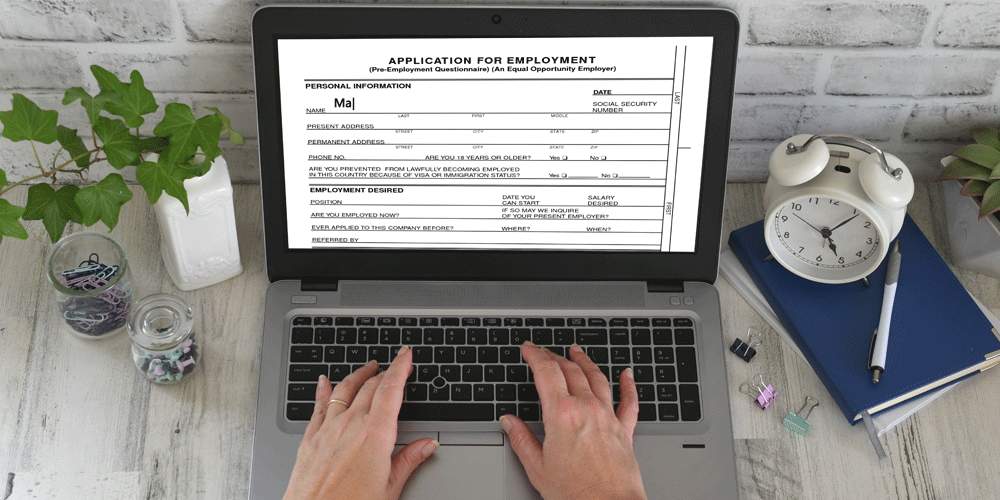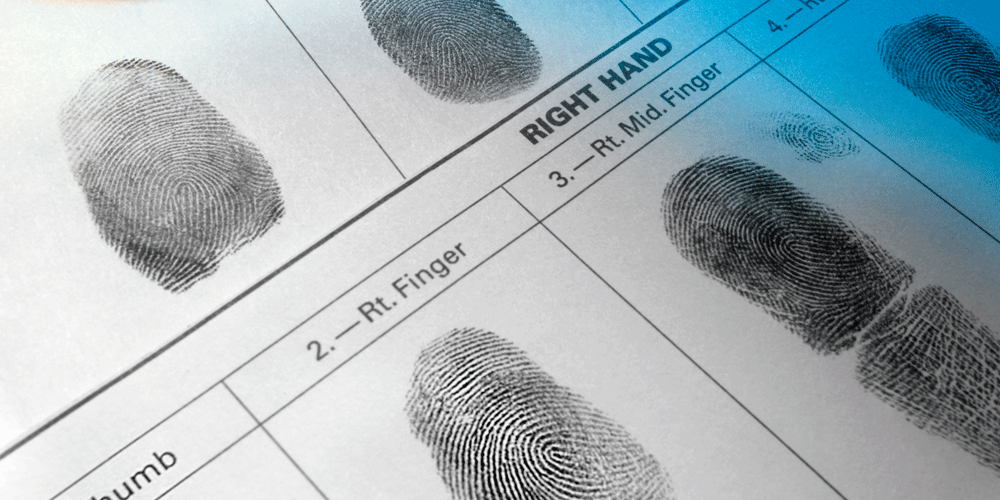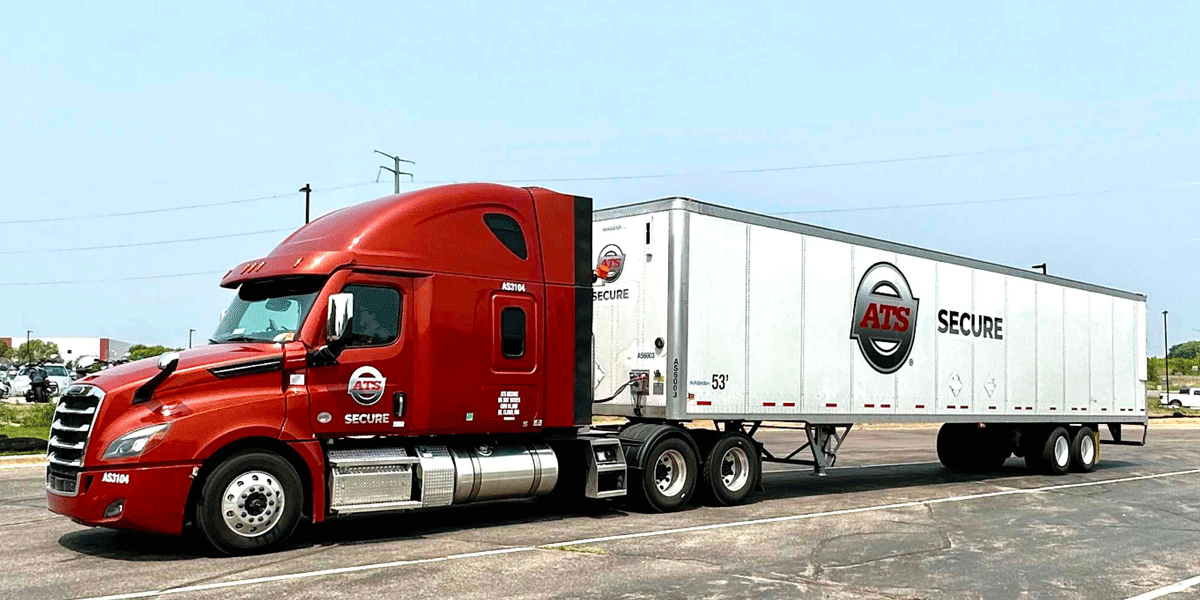Aaron joined the ATS team as the specialty freight manager. He came to the team with 22 years of experience handling arms, ammunition and explosives shipments (AA&E) for the Department of Defense. He first got into the ammo hauling business by answering a “help wanted” ad in the newspaper when that was still a thing. In that time, he’s transitioned from a very small family-owned business to a very large family-owned business while working with some of the very best and most dedicated drivers on the road – both company drivers and owner-operators. The trucks and technology have changed along the way, but the mission has remained the same since the start – supporting our warfighters in every way possible.
Do you want to support the military?
Do you want to haul high-priority freight?
Do you like the thrill of hauling highly classified freight with a team?
It sounds like you're itching to haul freight for the Department of Defense (DOD) — freight that so many drivers are excited about. To get there, you have a few hoops to jump through first.
Drivers hoping to haul DOD freight often wonder what could prevent them from gaining security clearance to haul DOD freight. While there isn’t a cut-and-dry answer, as the DOD doesn’t publish a formal set of guidelines, there are a few things the officers are looking at when they review your application.
In mid-2021, ATS began hauling our first DOD loads. We’ve been focused on growing our team of DOD drivers since.
This article will help you understand more about the Standard Form 86 (SF-86) application, what might stand out to an officer reviewing your application, and what could potentially disqualify you from receiving security clearance for a national security position.
Filling Out the SF-86, a Guide
You must fill out the SF-86 application to gain security clearance to move certain freight with the DOD, such as transportation protective services freight (TPS) and Arms, Ammunitions and Explosives (AA&E). If you have all your materials prepped and ready to go, it may take you as little as two hours to fill out the application. However, depending on your background, it can take longer.
For instance, the application requires you to fill in details about your family, work history, and previous addresses. If you have a large family, have held a lot of jobs or you’ve moved around a lot, it could take you a lot longer to fill out the application compared to another driver.
Moral of the story: Give yourself plenty of time to fill out the application and come prepared with all the information and paperwork you might need. This not only includes your family history, work history, and personal residence history but it also includes information about your credit history, foreign affairs, and more.
Be honest when you’re answering the questions on the form. If you need to provide clarification on a particular question, there is a comment section where you can add notes. You shouldn’t leave anything off your application in the hopes a reviewing officer won't catch it.
It’s a good idea to review the SF-86 guide from the U.S. Office of Personnel Management (OPM) to check out tips and common application errors. Some guides go over the form section by section and provide helpful hints for filling out the form.
The guides also explain common errors people make that get their applications rejected. Most of the common mistakes include incomplete or blank sections or contradictory information. You should never leave information gaps. For instance, you’ll need to report your address and work history for the last 10 years; you shouldn’t leave any years out.
Your form may be rejected for corrections. You’ll be required to log back in and re-answer each yes/no question and address the requested changes.
Don’t forget you need to supply three personal references and have fingerprinting done too.
Related: Is Team Truck Driving Right for You?

Common SF-86 Security Clearance Disqualifiers
The most common security clearance disqualifiers include:
- Not a U.S. Citizen
- Not loyal to the U.S. / foreign influence
- Illegal drug use/involvement
- Mental incompetency or psychological conditions
- Dishonorable discharge from the military or revoked security clearance
- A history of financial problems
- Criminal activity
These are the most common reasons you may be denied a security clearance, but other factors could also delay your acceptance or disqualify you.
In this section, I’ll explain the types of information you’ll be expected to provide and what could potentially disqualify you in each of these areas.
Again, remember that the DOD doesn’t publish its guidelines or disqualifications. We can only tell you what we know the DOD is looking for and what we’ve seen historically.
The background check determines if employees are suitable and fit for employment and eligible to access and protect classified information. Ultimately, officers are trying to determine if there’s anything in your life that could cause a conflict of interest and/or place you in a position where you have to choose between your personal allegiances and your allegiance to the U.S.
The officers looking at your background check are more concerned with lifelong habits. For instance, a one-time credit mistake might not be an issue, but a decades-long pattern of financial trouble can be problematic.
Providing any information on the form is voluntary, but keep in mind that if you don’t provide the requested information, it can adversely affect your ability to gain security clearance.
Personal Information
There will be several sections that cover your personal information including social security number, passport, citizenship, past addresses, selective service record, and school/education information. Lying in any of these sections can get you disqualified.
This section is designed to provide proof of identity and to get an idea of your background history.
If you have dual citizenship, officers will pay special attention to make sure that you’re allegiant to the U.S. That doesn’t mean drivers with dual citizenship won’t receive security clearance; it simply means it’s something they’ll look at.
However, you must be a U.S. citizen; you’ll be disqualified if you only have a green card.
Employment Records
In these sections of the application, you’ll need to provide information about your employment and unemployment record.
One of the top areas of concern for security clearances is handling protected information. If you have a history of being fired from jobs for violating policies and failing to protect private information, this could be a problematic area for you.
Relationship Information
You’ll need to provide information about people you know well, including your spouse (if applicable) and close family members. You’ll also need to enter information about past spouses and people you may cohabitate with. If they were born outside of the U.S., you must provide their citizenship information.
You’ll need to provide information about each relative, including their relation to you, where they live, contact information, employment, and any affiliation to a foreign government or military personnel.
This is to gain a good understanding of the people close to you and how you may or may not be subjected to foreign influence. For instance, if your sibling holds a position in a foreign government, they’ll closely review this.
Foreign Behavior
Several sections on the SF-86 deal with your foreign influence and foreign preference. You’ll need to provide information about any foreign contacts you may have or foreign activities. This includes information about people close to you who have ever had any foreign financial interests.
The officer reviewing your application will try to determine if you have any ties to another country. They want to ensure that you’re not working on behalf of another country. They don’t want to give you security clearance that can harm the U.S.
Psychological and Emotional Health
Psychological conditions are another area of concern for security clearance. The officer reviewing your application will ensure you’re deemed mentally fit to carry out the task of hauling protected freight.
You’ll have to answer a series of questions about whether you’ve ever been deemed mentally incompetent, if you’ve ever been court-ordered to consult with a mental health professional, if you’ve ever been hospitalized for a mental health issue, or if you’ve been diagnosed with a series of mental illnesses (including schizophrenia, schizoaffective disorder, bipolar mood disorder, borderline personality disorder, or another psychotic/mood disorder).
You must also indicate if you have a mental health condition that impacts your judgment, reliability, or trustworthiness and if you have or are currently receiving treatment for the condition.
Keep in mind that mental health treatment and counseling aren’t reasons for your security clearance to be denied (or revoked). In fact, noting that you receive regular treatment may contribute favorably to your security clearance eligibility.
Drug Activity
A history of drug addiction, drug involvement, or alcoholism can provide a barrier to receiving security clearance.
Past issues with drugs or alcohol may disqualify you from receiving security clearance. Current, ongoing use of an illegal drug will automatically disqualify you.

Financial Records
A history of financial problems is the number one reason why drivers fail to receive security clearance. More drivers are denied from receiving security clearance for financial problems than any other issue. (Personal conduct is the second most common.)
Officers look for credit issues and debt problems and they examine their causes to determine if there were factors outside your control (such as hospital bills) or if you have a pattern of not paying off debt.
They look to see if you have financial violations like theft, embezzlement, or tax evasion. They look to see if you’ve made poor credit choices, if you regularly pay bills late, and if you have a pattern of unpaid debt. Gambling problems or financial trouble because of drugs is especially problematic. If you’ve recently acquired an asset or cash but have no supporting documentation, you may also be denied security clearance.
You’ll need to detail home loans, medical bills, vehicle ownership, and more financial information.
Criminal Activity
Though there isn’t a section on the SF-86 for you to fill in any past criminal activity or convictions, an extensive background check is part of the clearance process. That means officers will look at your criminal background.
While there isn’t a list of specific criminal activity disqualifiers, drivers are more likely to be disqualified from receiving security clearance if they’ve been tried in federal criminal courts.
Financial crimes are a big no-no and may disqualify you. Misdemeanors, such as disorderly conduct, may or may not be held against you.
How Long Does the SF-86 Background Check Take?
To receive your security clearance, you’ll also need to include three personal references and have fingerprinting done. You can typically go to a sheriff's office or a county courthouse to do this for a minimal fee.
Then you wait.
You’re either granted security clearance or interim security clearance. Interim security clearance is granted when officers aren’t seeing any immediate red flags and it’s looking like you’ll be granted final security clearance.
There are some cases where a driver is granted interim security clearance and then they don’t get final security clearance, but it doesn’t happen often. Sometimes you won’t get interim security clearance, you’ll just be approved right away.
If you’re denied security clearance, you’ll have the opportunity to address the information that prompted the denial.

Can I Reapply for Security Clearance After I Was Disqualified?
Yes, you can reapply.
Typically, however, you should wait at least one full year after your denial before you apply again.
When you reapply, you’ll need to resubmit your application and include a written request for reconsideration. When you reapply, you should ensure that the potential issues that may have prevented you from being approved the first go around have been resolved.
Haul DOD Freight and Be a Top-Earner
It’s difficult to know exactly what disqualifies a driver from receiving security clearance outside of financial problems or drug use, but this guide will help you understand some problem areas.
More than anything, officers are looking for a pattern of behavior that puts a driver’s allegiance to the U.S. into question. They want to ensure that you’re loyal to the U.S. and that there’s nothing you’ll do to deliberately compromise the protected freight you’ll be hauling.
Filling out the SF-86 application is only one part of the process. Do you have the discipline it takes to haul DOD freight? Do you have a trusted team member who will drive alongside you as you haul this protected freight?
Learn more about what it takes to haul DOD freight and what will be expected of you.
If you'd like to learn more about the DOD freight ATS drivers haul, contact a recruiter today.


